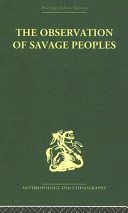Egotistical Man Doesn't Study Man
In an age of egoism, it is so difficult to persuade man that of all studies, the most important is that of himself. This is because egoism, like all passions, is blind. The attention of the egoist is directed to the immediate needs of which his senses give notice, and cannot be raised to those reflective needs that reason discloses to us; his aim is satisfaction, not perfection. He considers only his individual self; his species is nothing to him. Perhaps he fears that in penetrating the mysteries of his being he will ensure his own abasement, blush at his discoveries, and meet his conscience. True philosophy, always at one with moral science, tells a different tale. The source of useful illumination, we are told, is that of lasting content, is in ourselves. Our insight depends above all on the state of our faculties; but how can we bring our faculties to perfection if we do not know their nature and their laws! The elements of happiness are the moral sentiments; but how can we develop these sentiments without considering the principle of our affections, and the means of directing them? We become better by studying ourselves; the man who thoroughly knows himself is the wise man. Such reflection on the nature of his being brings a man to a better awareness of all the bonds that unite us to our fellows, to the re-discovery at the inner root of his existence of that identity of common life actuating us all, to feeling the full force of that fine maxim of the ancients: 'I am a man, and nothing human is alien to me.'
Notes:
Because he his concerned only with his immediate wants, not his betterment.
Folksonomies: anthropology improvement
Taxonomies:
/science/social science/philosophy/ethics (0.603941)
/science/biology/zoology/endangered species (0.483539)
/home and garden/home furnishings/lamps and lighting (0.482303)
Keywords:
Egotistical Man (0.975395 (negative:-0.718608)), moral sentiments (0.913173 (positive:0.523577)), immediate needs (0.894425 (neutral:0.000000)), individual self (0.889085 (neutral:0.000000)), moral science (0.880217 (positive:0.506278)), reflective needs (0.878985 (positive:0.293933)), useful illumination (0.876140 (positive:0.394410)), lasting content (0.872787 (positive:0.392549)), different tale (0.867769 (positive:0.422123)), True philosophy (0.865619 (positive:0.495858)), fine maxim (0.864025 (positive:0.371774)), wise man (0.861799 (positive:0.643314)), inner root (0.855552 (neutral:0.000000)), common life (0.848112 (neutral:0.000000)), better awareness (0.836327 (positive:0.636585)), egoism (0.752215 (neutral:0.000000)), faculties (0.674808 (positive:0.717028)), nature (0.628894 (positive:0.653032)), affections (0.611375 (negative:-0.239956)), perfection (0.607475 (negative:-0.258495)), egoist (0.604116 (neutral:0.000000)), betterment (0.602724 (negative:-0.494684)), re-discovery (0.602207 (neutral:0.000000)), passions (0.591996 (positive:0.227695)), conscience (0.585575 (positive:0.324714)), senses (0.584239 (neutral:0.000000)), ancients (0.582551 (positive:0.371774)), fellows (0.579588 (positive:0.636585)), satisfaction (0.578428 (positive:0.348442)), notice (0.576585 (neutral:0.000000))
Concepts:
Plato (0.918293): dbpedia | freebase | opencyc | yago
Reason (0.866400): dbpedia | freebase
Egoism (0.776913): dbpedia
Morality (0.690585): dbpedia | freebase
Egoist anarchism (0.677586): dbpedia | freebase
Individualist anarchism (0.609192): dbpedia | freebase | yago
Individualism (0.597635): dbpedia | freebase
Ethical egoism (0.595693): dbpedia | freebase





